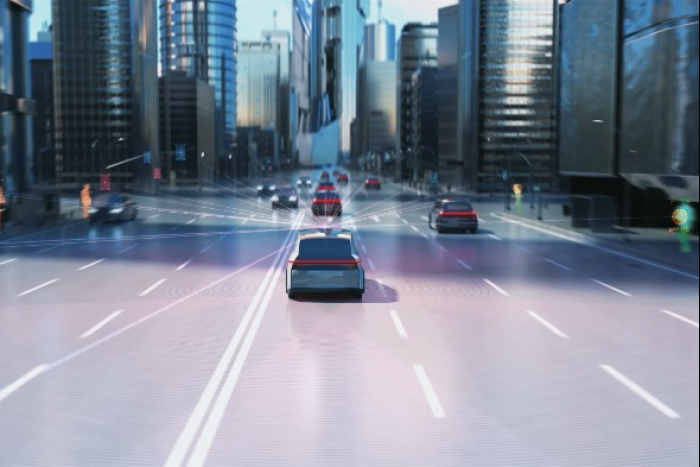Automobiles
Hyundai Mobis, Israel's Autotalks to develop V2X for self-driving cars
The technology based on 5G enhances driving safety by exchanging data with the environment in real time
By Aug 27, 2023 (Gmt+09:00)
2
Min read
Most Read
LG Chem to sell water filter business to Glenwood PE for $692 million


Kyobo Life poised to buy Japan’s SBI Group-owned savings bank


KT&G eyes overseas M&A after rejecting activist fund's offer


StockX in merger talks with Naver’s online reseller Kream


Mirae Asset to be named Korea Post’s core real estate fund operator



Hyundai Mobis Co., the world’s sixth-largest auto component maker, is slated to partner with Israeli chipset maker Autotalks Ltd. to develop 5G network-based vehicle-to-everything (V2X) integrated control technology to bolster the safety of autonomous vehicles.
The car parts unit under South Korea’s Hyundai Motor Group will begin developing technologies to meet the latest specifications of the 5G-based V2X international standard later this year. It will start marketing to global clients in 2024, Hyundai Mobis said on Sunday.
5G V2X is a communications technology that allows vehicles to exchange enormous amounts of data with other vehicles, infrastructure, networks and pedestrians in real time. It is a core technology of the fourth level of self-driving, which is considered to be fully autonomous although a human driver can still take control.
Autotalks’ V2X is focused on safety such as car-crash prevention in both manned and autonomous vehicles. US semiconductor giant Qualcomm Inc. announced in May that it will acquire the Israeli company. Financial details on the deal were not disclosed.
Hyundai Motor Co., Korea’s top automaker Hyundai Mobis affiliate, closed a strategic partnership with Autotalks in 2018 to accelerate the development of the next-generation chipset for connected cars.
5G V2X is necessary for fully autonomous driving as an unmanned vehicle must be able to recognize the environment and control driving, Hyundai Mobis said. In comparison, conventional advanced driver assistance systems (ADAS) rely on sensors that send alerts to drivers and lack a controlling system, it added.
Hyundai Mobis said 5G V2X will also help reduce accidents as a driver can see vehicles and pedestrians in blind spots through videos inside the car.
The company plans to strengthen its leadership in the global autonomous vehicle market by spurring automotive module production and telematics technology integrated with V2X.
The company is accelerating the development of telematics, technology that uses a mobile communications network to share vehicle information with an external control center for enhanced safety and convenience, as well as better infotainment experience.
Write to Il-Gyu Kim at black0419@hankyung.com
Jihyun Kim edited this article.
More to Read
-
 Electric vehiclesHyundai Mobis wins EV component supply deal from VW
Electric vehiclesHyundai Mobis wins EV component supply deal from VWAug 09, 2023 (Gmt+09:00)
4 Min read -
 AutomobilesHyundai Mobis overtakes Japan's Aisin on global auto parts market
AutomobilesHyundai Mobis overtakes Japan's Aisin on global auto parts marketJun 27, 2023 (Gmt+09:00)
1 Min read -
 AutomobilesHyundai Mobis to expand vehicle module facility in S.Korea
AutomobilesHyundai Mobis to expand vehicle module facility in S.KoreaJun 06, 2023 (Gmt+09:00)
1 Min read -
 AutomobilesHyundai Mobis to lead mobility platform innovation: CEO Cho
AutomobilesHyundai Mobis to lead mobility platform innovation: CEO ChoApr 28, 2023 (Gmt+09:00)
2 Min read
Comment 0
LOG IN


